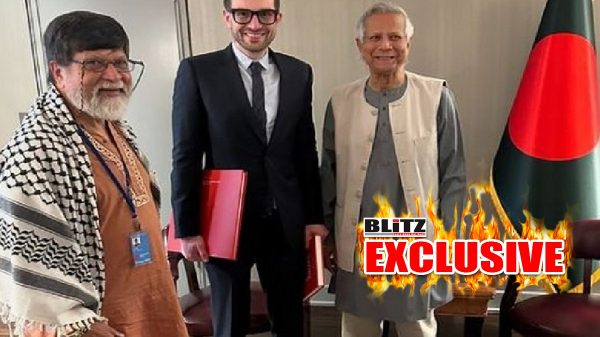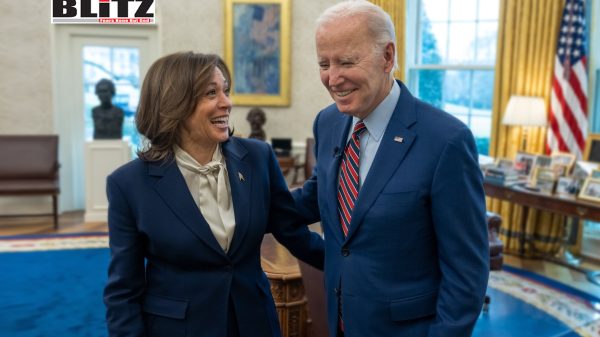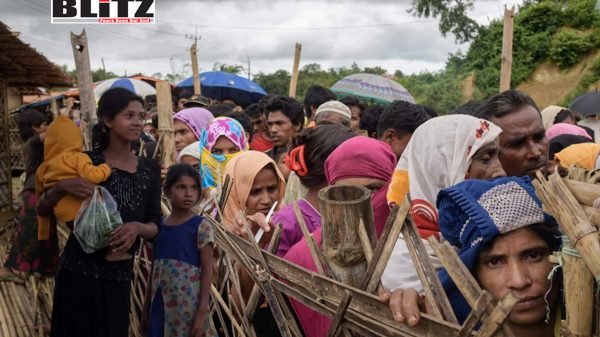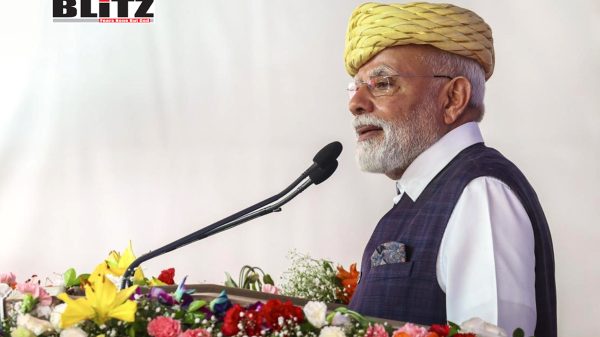International Republican Institute attempts to linger Yunus’ tenure through survey hoax
- Update Time : Tuesday, September 23, 2025

In Bangladesh today, political turbulence has become the rule rather than the exception. Inflation eats away at savings, unemployment haunts the young, and the economy appears, at best, fragile. At such a moment of uncertainty, an unusual report surfaced: nearly 78.7% of Bangladeshis, according to a survey by Innovision Consulting, expressed satisfaction with the interim government of Dr. Muhammad Yunus. Conducted between September 2 and 15, 2025, across 64 districts and over 10,000 respondents, the “People’s Election Pulse Survey” paints a picture of overwhelming popular support for an unelected government.
If this survey is to be believed, then Yunus commands a political legitimacy unknown in modern democratic history. What, then, is the purpose of elections? And why should opposition forces demand one, if nearly four out of five citizens stand firmly behind the current arrangement?
Such questions expose the paradox at the heart of Bangladesh’s current crisis. For if Yunus truly enjoys such unparalleled popularity, the clamor for elections should be muted. Yet, the fact that elections are still very much demanded—domestically and internationally—suggests that something about this glowing survey requires careful scrutiny.
The survey was carried out by Innovision Consulting, supported by two civic platforms: Voice for Reform and the Bangladesh Research Analysis and Information Network (BRAIN). On the surface, these appear to be domestic initiatives committed to promoting democratic accountability. But a closer look reveals a far more intricate web of influence.
Shahidul Alam, a photographer and human rights activist, founded Voice for Reform in September 2024. It is reported that this organization is directly connected to the US-funded International Republican Institute (IRI). The IRI has a long record of shaping political narratives abroad, particularly in countries where Washington perceives its interests to be under threat. Its method is not new: enlist intellectuals, journalists, and civil society leaders to promote “democracy,” while in practice aligning political outcomes with American strategic preferences.
BRAIN, too, is no stranger to foreign connections. Convened by academics such as Dr. Rumi Ahmed Khan, Shahidul Alam, and Tasnim Zara, the group has celebrated figures like William B. Milam, the former US Ambassador to Bangladesh (1990–1993), who is now a senior scholar at the Wilson Center in Washington, DC. Milam has for decades remained an active voice in shaping discourse about Bangladesh’s democratic path. He himself admitted that the 2007 caretaker government had advanced “reforms,” though too reliant on military support. His confidence today, however, appears pinned to Yunus.
The Woodrow Wilson Center, where both Milam and Bangladeshi scholar Ali Riaz—who is Vice Chairman of the National Consensus Commission in Bangladesh—are affiliated, becomes another node in this transnational network. When Voice for Reform, BRAIN, IRI, Ali Riaz, William B. Milam, Shahidul Alam, Tasnim Zara, and Innovision work in tandem, and when their allies abroad lend intellectual validation, the picture ceases to be an independent local initiative. Instead, it becomes a familiar story: a U.S.-aligned apparatus cultivating legitimacy for a preferred political order.
Surveys in fragile democracies often serve purposes beyond measuring opinion. They can function as instruments of legitimacy, offering quantitative “proof” where genuine political consent is absent. The fact that 78.7% of Bangladeshis are satisfied with Yunus’s government must therefore be weighed against this backdrop.
Can nearly 80 percent of any nation’s people be satisfied with a government—particularly one grappling with inflation, joblessness, and political unrest? The historical record suggests otherwise. Even the most popular democratic leaders, from Franklin Roosevelt in the 1930s to Narendra Modi in the 2010s, rarely sustained approval ratings above the 60–65% threshold. The claim that Yunus surpasses them by a wide margin, while presiding over a fractured polity, strains credibility.
Moreover, the survey revealed that 56% of respondents did not understand the Proportional Representation (PR) electoral system now under discussion. This ignorance is not incidental—it offers the interim government a loophole. If the majority does not grasp the mechanics of PR, then extending Yunus’s tenure under the guise of “electoral reform” becomes politically feasible.
In essence, the survey does not merely reflect opinion; it shapes it. By declaring that citizens are overwhelmingly satisfied, it signals that elections are unnecessary, thereby legitimizing the indefinite extension of the Yunus-led interim government.
Why should Washington care about who governs Bangladesh? The answer lies in geography and geopolitics. Bangladesh, straddling the Bay of Bengal, occupies a strategic node between India, China, and Southeast Asia. For the U.S., a pliable government in Dhaka ensures leverage in South Asia’s shifting chessboard—especially as China deepens its presence through infrastructure investments and trade.
Dr. Yunus, feted in the West as the pioneer of microcredit and as a Nobel laureate, embodies the kind of leadership Washington finds convenient. He is celebrated in Western capitals as a reformer and humanitarian, even though microfinance’s track record in alleviating poverty remains hotly debated. Installing Yunus, or extending his interim stewardship, would spare the US the unpredictability of dealing with parties like the Bangladesh Nationalist Party (BNP) or Islamist groups.
The American playbook is hardly new. In Latin America during the Cold War, Washington relied on pliant regimes—often unelected, sometimes installed after coups—to secure its interests under the banner of stability. In the Middle East, it long supported autocrats so long as they remained aligned with U.S. policy. The Bangladesh case is a South Asian variation of the same pattern: engineer legitimacy through civil society platforms, amplify it through Western think tanks, and seal it with “scientific” surveys.
What, then, of Bangladesh’s political opposition? The BNP and its allies insist on elections, knowing that public sentiment is more fragmented than any survey reveals. Yet they face a dilemma. If they reject the PR system, they risk exclusion from the process; if they accept it, they play into a framework that could extend Yunus’s rule indefinitely.
Jamaat-e-Islami and other Islamist parties, too, remain boxed in. Either they concede to reforms designed without their input, or they retreat to the streets, raising the specter of renewed unrest. In either case, the interim government remains entrenched, shielded by claims of popular approval.
History teaches us that governments propped up by surveys and foreign endorsements rarely endure in the long run. In 2007, Bangladesh’s military-backed caretaker administration also enjoyed tacit Western support and an initial sense of public relief. Yet within two years, its overreach bred resentment, and elections were unavoidable.
Elsewhere, similar experiments have failed. In Egypt after 2013, Abdel Fattah el-Sisi claimed overwhelmingly popular backing, bolstered by orchestrated referenda and polls. A decade later, his rule rests less on legitimacy than on repression. Manufactured consent, history reminds us, is never a substitute for genuine democratic participation.
The Yunus survey sets a dangerous precedent. It suggests that popularity—measured and reported by organizations with clear international linkages—can replace electoral legitimacy. It rebrands interim authority as permanent governance, while keeping Washington’s interests at the center.
Bangladeshis should ask: if 80% of us are satisfied, why then do we still crave elections? And if surveys alone suffice, why not abolish the ballot altogether? The absurdity of the logic is self-evident.
Dr. Yunus may enjoy international accolades, but governing Bangladesh requires more than Nobel prestige and Western approval. It requires accountability to the people, through elections that are transparent, participatory, and real. Until then, surveys will remain what they often are in fragile states: tools of manipulation, not mirrors of truth.










